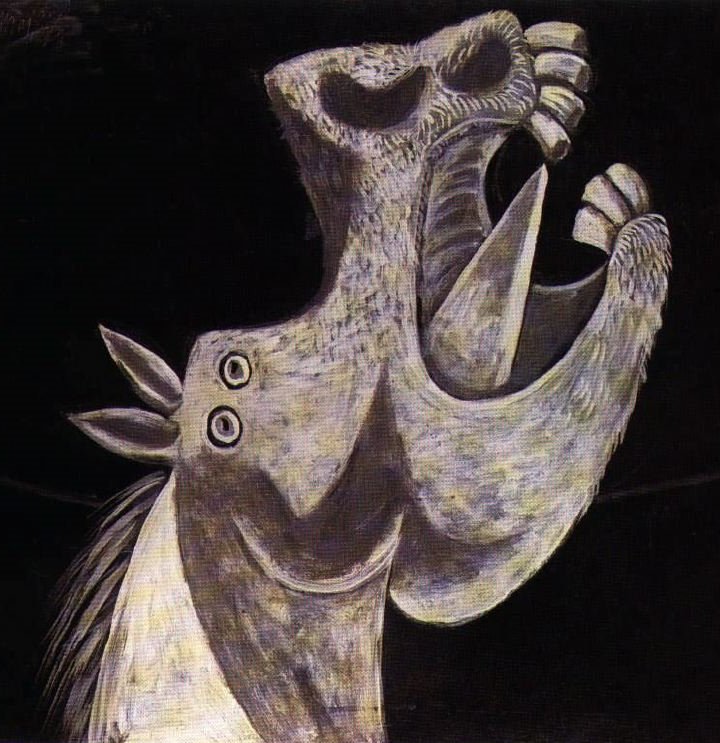 Gloomy-dark overcast this Wednesday afternoon on California’s north coast as we’re in the midst of a fairly-decent rainstorm with some heavy precipitation due later this afternoon and tomorrow.
Gloomy-dark overcast this Wednesday afternoon on California’s north coast as we’re in the midst of a fairly-decent rainstorm with some heavy precipitation due later this afternoon and tomorrow.
Although the air doesn’t feel too bad right now, supposedly there’s windy weather a-coming — according to the NWS: ‘A strong cold front will bring gusty south winds to the area peaking around midday on Thursday.’
Reportedly, gusts could hit 50 mph during this time.
Blowing hard, too, is the crazy violence in this so-called modern world, from ISIS to ‘active shooter’ routines in the US — all apparently springing from mankind’s dark-ugly side.
(Illustration: Pablo Picasso’s ‘Head of a Horse, Sketch for Guernica,’ found here).
Seemingly, humanity’s violent history might just be catching up with us. New research published last week reveals how we populated the earth by running scared — an archaeologist suggests ‘betrayals of trust’ forced early man to spread our species around the world.
From the University of York, research by Dr Penny Spikins, of the University’s Department of Archaeology, explained the ‘dispersal into distant, risky and inhospitable areas‘ was really a kind of original ‘running from the mob‘ routine:
She suggests that as commitments to others became more essential to survival, and human groups ever more motivated to identify and punish those who cheat, the ‘dark’ side of human nature also developed.
Moral disputes motivated by broken trust and a sense of betrayal became more frequent and motivated early humans to put distance between them and their rivals.
…
Dr Spikins argues that betrayals of trust resulting from moral disputes were a significant reason for such risky dispersals into apparently unwelcoming environments with a desire to avoid physical harm from disgruntled former friends and allies being a key motivation.
Offenders and any allies within their social network would feel driven to get out of harm’s way.
She says: “Active colonisations of and through hazardous terrain are difficult to explain through immediate pragmatic choices. But they become easier to explain through the rise of the strong motivations to harm others even at one’s own expense which widespread emotional commitments bring.
“Moral conflicts provoke substantial mobility — the furious ex ally, mate or whole group, with a poisoned spear or projectile intent on seeking revenge or justice, are a strong motivation to get away, and to take almost any risk to do so.
“While we view the global dispersal of our species as a symbol of our success, part of the motivations for such movements reflect a darker, though no less ‘collaborative’, side to human nature.”
We hated cheaters and back-stabbers, and seemingly there were a shitload of them.
Now they’re just Republicans…